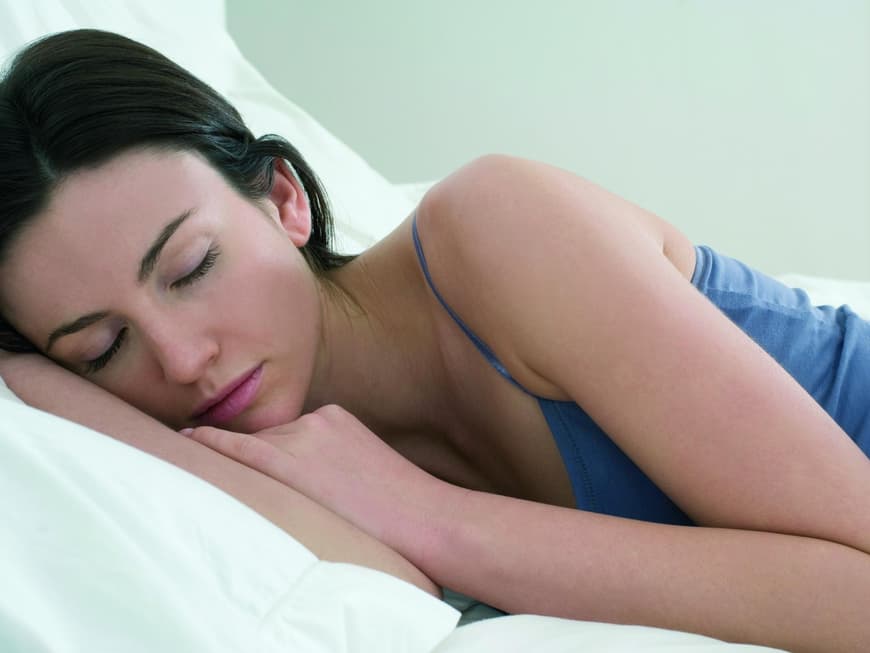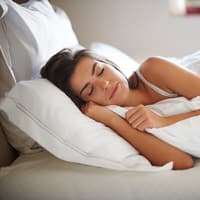
Snoring and sleep apnea: the risks
Snoring is an indication that breathing is impaired due to a relaxation of the upper airways. The characteristic, sawing sound occurs when the muscles in the throat slacken and both the uvula and soft palate constrict the throat during sleep, which in turn impedes the flow of air.
The relaxation of the upper airways can be caused by various factors, including alcohol consumption, smoking or the use of sleeping pills or sedatives. Obesity, nasal polyps or other physical characteristics can also cause the airways to narrow when lying down.
Although snoring is annoying in itself, it is generally harmless. It is only when shallow breathing and pauses in breathing occur that obstructive sleep apnoea is diagnosed. The underlying causes are similar to snoring, but breathing pauses of at least ten seconds lead to a lack of oxygen and can cause other medical problems.
Also exciting: help with sleep disorders: The big sleep consultation
Why sleep apnoea is dangerous
It is estimated that around three percent of women and five percent of men in Germany are affected by sleep apnoea. The Institute for Quality and Efficiency in Health Care (IQWiG) reports that the probability of developing sleep apnea syndrome increases significantly from the age of 45.
The narrowing of the airways leads to an insufficient supply of oxygen to the body. As a result, blood pressure drops and the heart rate slows down. If breathing stops for a few seconds, the respiratory center in the brain is alerted and triggers an arousal stimulus. The affected person wakes up and reacts with an increase in blood pressure and an accelerated heartbeat.
This phenomenon is often referred to as "arousal", although those affected hardly remember it themselves. However, it has significant health consequences. If someone is woken up in this way repeatedly and several times during the night, deep sleep is severely disturbed.
The long-term health consequences are evident. In particular, the increased blood pressure leads to heart rhythm disturbances and an increased risk of heart attacks and strokes. Sleep apnoea is particularly dangerous for patients with chronic obstructive pulmonary disease (COPD), as they already have a restricted oxygen supply due to their underlying disease.
Also interesting: Feel-good bedroom: tips for a restful sleep
Symptoms of sleep apnoea
In many cases, sleep apnoea remains undetected for a long time. People who lie alone in bed do not have a partner who can make them aware of the risky breathing interruptions.
However, there are symptoms that are primarily observed during the day and can indicate sleep apnoea. These include, above all, severe daytime sleepiness. Many sufferers often nod off during the day due to disturbed sleep, have difficulty concentrating and are impaired in their cognitive abilities. These signs are extremely dangerous and pose a major risk for everyone involved at work or in traffic, as microsleeps are all too often fatal.
Many sufferers also complain of headaches and a dry mouth in the morning. This is often accompanied by a racing heart and shortness of breath on waking. Last but not least, sweating and increased urination at night as well as potency problems in men can be symptoms of obstructive sleep apnoea.






